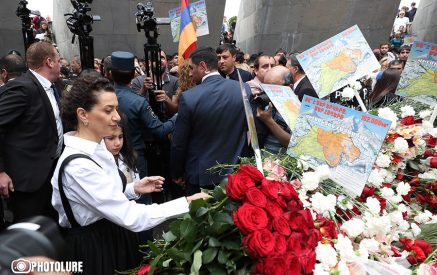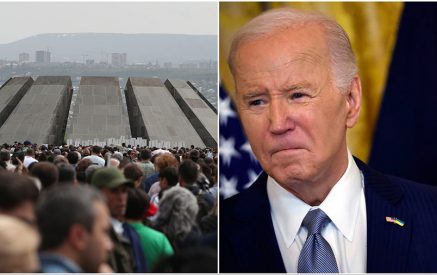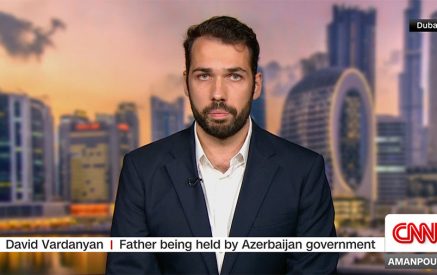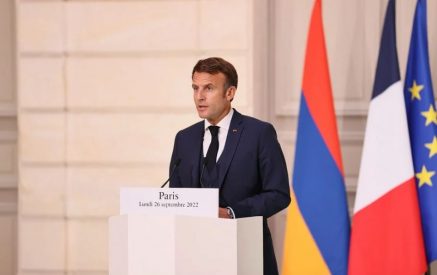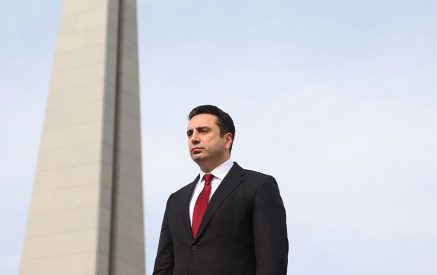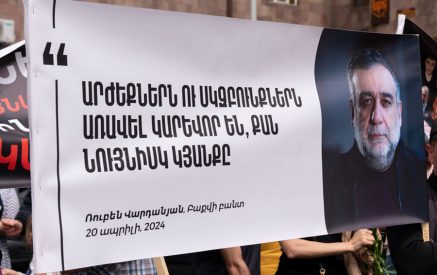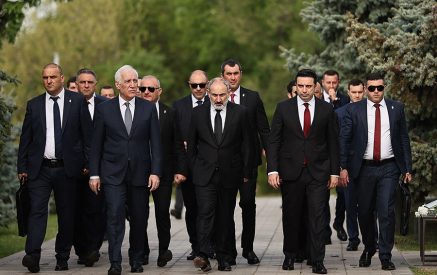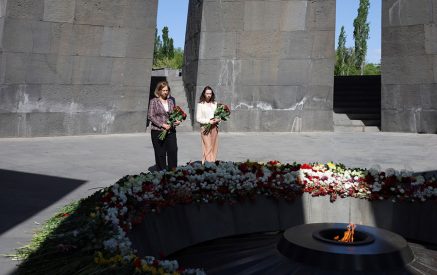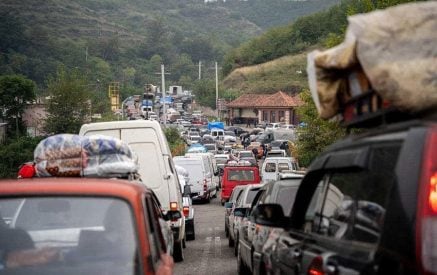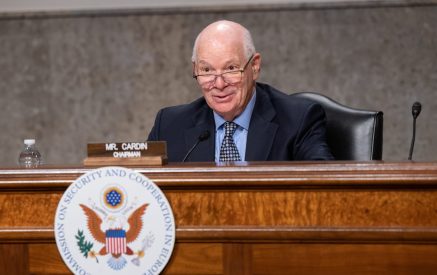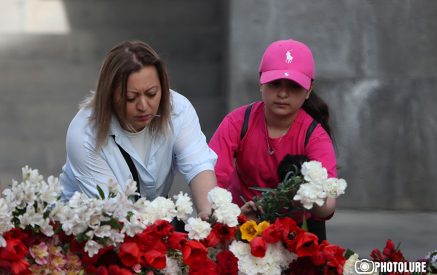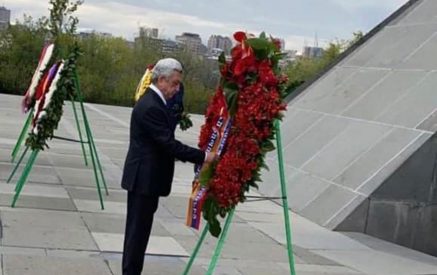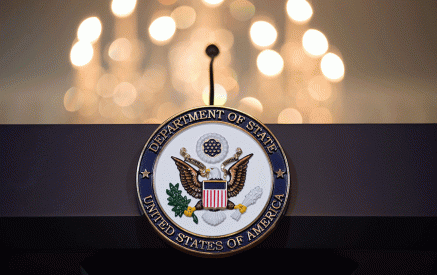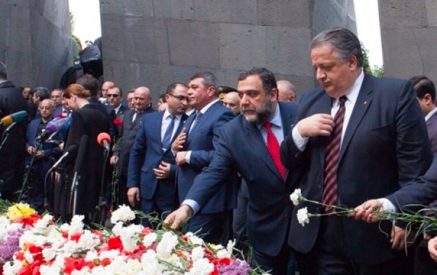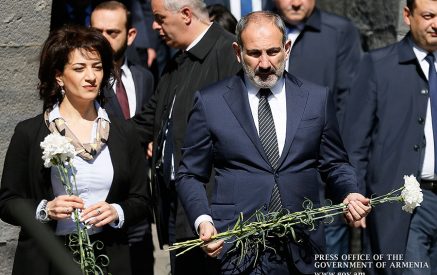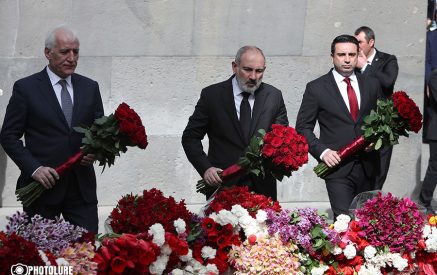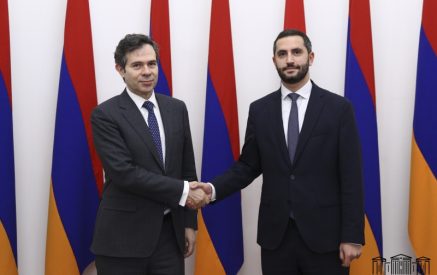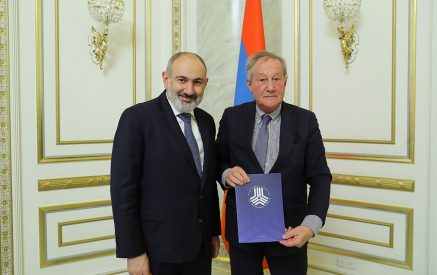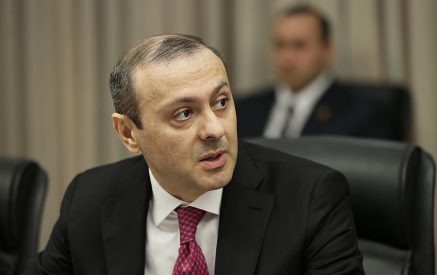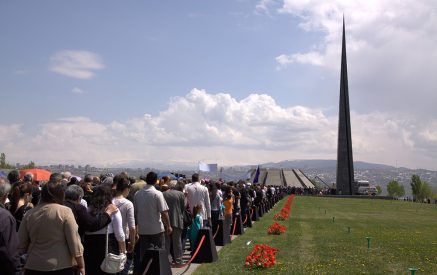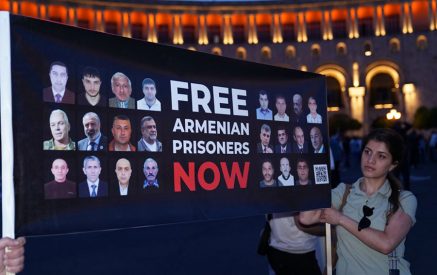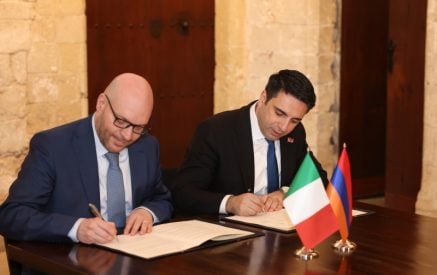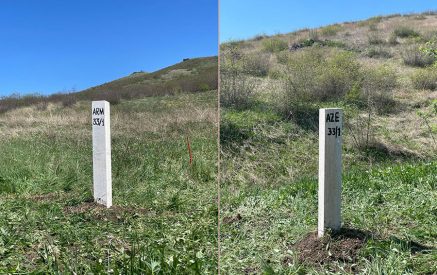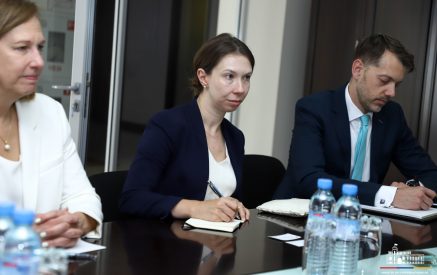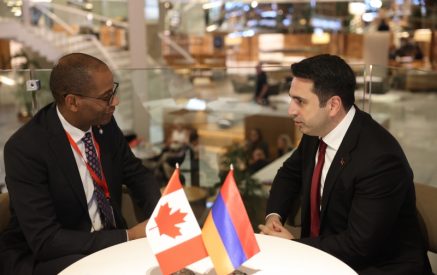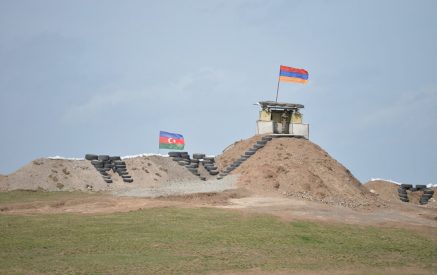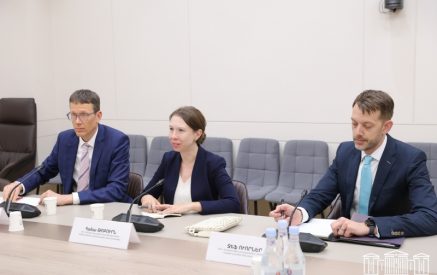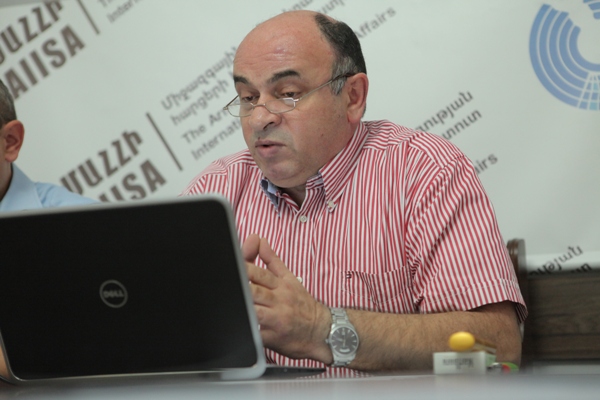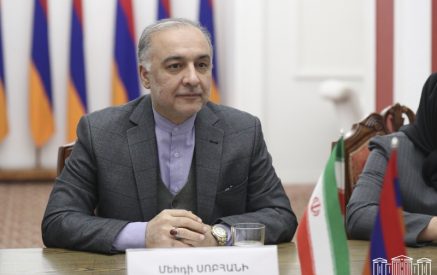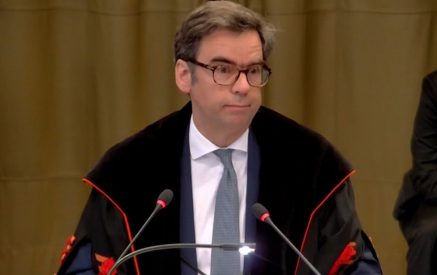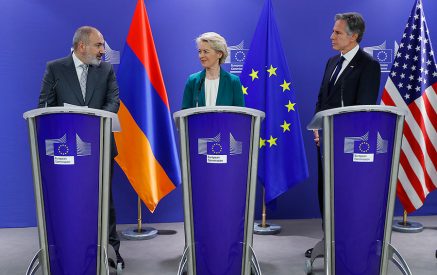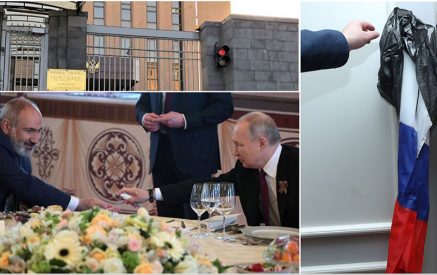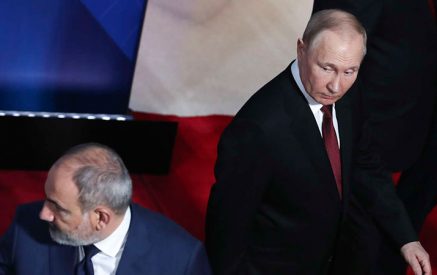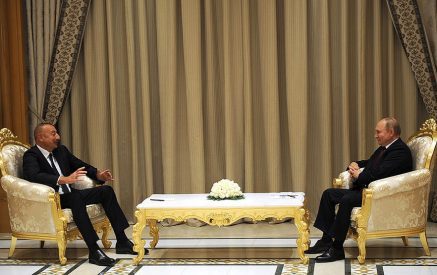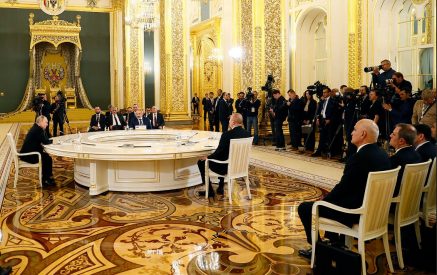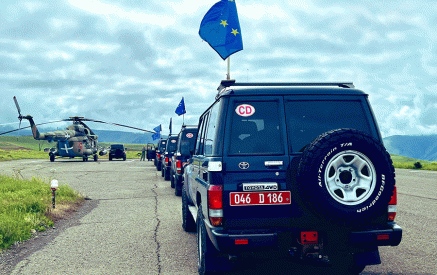Aghasi Yenokyan
Director of the Armenian Center for Political and International Studies
“Improving Armenia’s Security Policy Debates” Program (NED)
The Armenian Institute of International and Security Affairs (AIISA)
Read also
Amid the largest security vacuum, emerged in the whole post-communist area after the collapse of the Soviet Union, most of the former Soviet republics, in their initial quest for new security systems, were obliged to adopt various Russia–led formats, first and foremost CIS military-political bloc. Meanwhile such an option was categorically unacceptable for East European and Baltic countries, which became pioneers to declare on their aspiration on being under the NATO security umbrella. NATO gradually started to enlarge to the east, proposing various formats for partnership also to the whole post-Soviet area, including South Caucasus, Central Asia and even Russia.
WHY SOUTH CAUCASUS MATTERS TO NATO?
Even in the Soviet period South Caucasus was the only zone, where NATO had shared border with the USSR without buffer countries (regardless a tiny maritime zone with Norway near the Arctic Ocean). This area has always been a special subject of attention for NATO. Utmost importance of rockets deployed in Turkey during the most inflammable situation of the Cold War period, i.e. Caribbean Crisis, is enough to remember.
After the Cold War South Caucasus naturally enough keeps its significance for the North-Atlantic security system, while a range of new factors appeared there.
- NATO is eager to see the post-Soviet area as a zone of stability, which is strictly problematic in South Caucasus under the unfolded Russian military presence and existing conflicts over Nagorno-Karabakh, Abkhazia and North Ossetia. Although NATO has never attempted to militarily intervene in those conflicts, it has repeatedly appeared with statements and political undertakings in this regard. Due to the very importance of those factors the body responsible for Euro-Atlantic security keeps them in the center of its attention.
- South Caucasus was in immediate proximity to the areas, with which NATO or its member countries have had military-political interests. First and foremost it refers the wars in Iraq and Afghanistan. It’s enough to remember, that in the peak of escalation of NATO-Pakistan relations, 1/3 of non-military cargo delivered to Afghanistan was supplied through Poti-Baku corridor.
- A chance to turn the Black Sea from Russian closed lake into open waters emerged after the collapse of the Soviet Union. South Caucasus, as a Black Sea littoral region, was of great interest in this regard as well. To solve this problem NATO modernized and activated naval forces of its member countries, i.e. Turkey, Romania and Bulgaria, a range of military exercises were held on the Black Sea, in which navies of non-NATO members i.e. Georgia and the Ukraine, were also included.
- NATO perceives South Caucasus as a region, where international threats, like terrorism and weapons of mass destruction can rise. To tackle them, NATO attaches great importance to international partnership.
- South Caucasus possesses considerable oil and gas reserves, and important pipelines pass through its territory. The region is of crucial importance for NATO member countries both as hydrocarbon supply and diversification zone.
- Another crucial issue is Iran, neighboring with South Caucasus. It was regarded by the West as a problematic country that conditioned a great desire to have a direct presence on its border. In Iran’s east—Afghanistan, NATO has a serious military presence. Forces of NATO member countries are also stationed to the west of Iran, i.e. in Iraq, and the USA’s 5th navy is located in the Persian Gulf, to the south. The North, and especially South Caucasus, remains Iran’s only border, where NATO militaries aren’t deployed.
- Finally, the importance of South Caucasus for NATO is highlighted due to Russia’s dominant presence and Russian military bases deployed in three South Caucasian countries: in Armenia—the 102nd Military Base of the Group of Russian Forces in Transcaucasia deployed in Gyumri and the 3624th Air Base in Yerevan’s Erebuni airport; until 2007 the 62nd Russian base was deployed in Akhalkalak, the 12th Russian military base was stationed near Batumi, and the 283rd air base division was deployed in Vaziani. At the moment, Russian “peacekeeping” troops, deployed in the territory of Georgia, are in Abkhazia and South Ossetia. Russian radar station had been operating in Gabala region of Azerbaijan until 2012. Russian border troops are stationed on Armenian-Turkish and Armenian-Iranian border. Besides that serious military presence, Moscow has greater impact on political establishment of South Caucasian countries, and the latter take into account the Kremlin’s opinion in their decision-making. Certainly, NATO strived to balance Russia’s influence in this region and control the latter’s southern gates.
In South Caucasus NATO has intensified its activities since 2004 due to Georgia’s “Rose Revolution,” which instigated more demand for NATO in the region, as well as NATO completed its enlargement in Europe, thus basically having more time, resources and political opportunities to deal with the region intensively.
In the summer of 2004 the allies made a decision to increase their presence in South Caucasus and Central Asia, and two significant positions were set up at NATO Istanbul summit: NATO’s special representative and 2 liaison officers (one officer for each region). Main responsibilities of the Special Representative of NATO’s Secretary General included: coordinating of NATO’s policy towards the two regions, providing necessary consultation to the Secretary General and working with heads of states of the regional countries to improve their cooperation with the Alliance.
NATO COOPERATION WITH GEORGIA, AZERBAIJAN AND ARMENIA
A brief glance at relations of three South Caucasian countries with NATO against the background of threat perception and setting up appropriate security mechanisms reveals the backbone of their bilateral cooperation.
Georgia
Among the countries of the region Georgia is clearly singled out with its more ambitious policy and purpose of membership to NATO and the EU. Georgia openly perceives its association to the Alliance as leverage towards Russia.
Georgia’s tension with Russia followed the collapse of the Soviet Union due to separatist aspirations of Abkhazia and South Ossetia, where Russia was overtly supporting those regions both politically and militarily.
To maintain its territorial integrity, Georgia was fairly seeking a format enabling to defend itself from Russia. The latter was perceived as a direct threat to the country’s security, therefore Georgia has always regarded NATO and the USA as Russia’s containment.
Voices for the cooperation with NATO always existed in the post-Soviet Georgia, but they became more substantial and consolidated after the “Rose Revolution” in 2003. At the referendum of January 2008 77% of voters supported Georgia’s membership to NATO.
The 2008 Russian-Georgian war made Georgia’s vulnerability from Russia and its need in NATO’s security guarantees more palpable. Although during the war NATO provided restricted support to Georgia, i.e. via political positioning, the same year, at Bucharest summit, member countries of the Treaty declared on possibility of Georgia’s membership. In 2011 the North-Atlantic Council granted Georgia an “aspirant country” status.
Despite Georgia’s great Euro-Atlantic aspiration and miscellaneous cooperation formats set by the Alliance, its membership is under question yet. Avoiding Russia’s resentment and tough reaction is obviously more vital for NATO, than extending “Article 5” on Georgia.
Disruption of NATO’s enlargement is a crucial problem for Russia. Its vivid proof is Russian president Dmitri Medvedev’s speech of 21 November 2011, declaring that Russian invasion into Georgia in 2008 prevented NATO’s further expansion to former Soviet territory.
After the Sahakashvili era Georgia’s official policy towards NATO, despite impeachments of incumbent authorities in Russophilia, hasn’t considerably changed. Getting a Membership Action Plan (MAP) from NATO was declared as the 2014 goal by Georgia’s Prime Minister Bidzina Ivanishvili in 2013. However, NATO doesn’t promise anything but close cooperation and expansive military support.
Azerbaijan
According to many commentators and politicians among South Caucasus countries Azerbaijan had the most serious chances to join NATO, as there were no Russian forces deployed on its territory, it is not a member of the Russia-run CSTO security system, and, what is more, Caspian oil is of significant importance for NATO member countries[1].
Azerbaijan’s attitude to join the Alliance has been strictly ambiguous, and officials’ statements in this regard remained contradictory. For instance, Prime Minister of Azerbaijan Yaqub Eyyubov declared 20 November 2007, that Azerbaijan plans to join NATO, while a week later, November 27th, Defence Minister Safar Abiyev declared the opposite – Azerbaijan doesn’t pursue the goal to join the Alliance.
As far as the major issue of Azerbaijan’s security is the Nagorno-Karabakh conflict, Baku’s positioning towards security systems, including its cooperation with NATO, is first and foremost conditioned by the latter’s attitude on the conflict. From time to time Azerbaijan intensifies strategic and political-military cooperation with NATO and its active member Turkey, but withdraws when NATO does not properly meet its expectations.
The policy under Heydar Aliyev (1993-2003) was aimed at building country’s security by balancing ties with Russia, Turkey and the West. With this policy he started to mitigate challenges emerged during a unilateral pro-Turkish policy under his predecessor Abulfaz Elchibey (1992-93). Attaching strategic importance to military-political partnership with Turkey, Heydar Aliyev was attempting to use NATO as a complementary vector for such cooperation. Ties with NATO were developing in a natural way, in compliance with actions and terms set up for South Caucasus by the Brussels.
Ilham Aliyev (2003-present) gave a great impetus to nationalism, thus considerably decreasing standards of democracy and human rights protection. This outcome instigated remarkable problems in Azerbaijan-NATO relations.
In recent years due to violations of norms for the protection of human rights and basic regulations for cooperation, serious crisis was recorded in Azerbaijan-NATO relations.
James Jones, supreme allied commander of NATO forces in Europe, canceled the scheduled military exercises in Azerbaijan with participation of 1000 servicemen from different countries, because of Baku’s denial of the expected participation of Armenian contingent[2].
Anders Fogh Rasmussen, NATO Secretary General, in 2012 expressed his deep concern on Baku’s decision to pardon Ramil Safarov, who axed his Armenian fellow student during NATO-sponsored training session, and warned that it will damage the peace process on Nagorno-Karabakh conflict[3].
James Appathurai, Secretary General’s special representative for the South Caucasus and Central Asia, expressed his concern on Armenian helicopter shot down during the military trainings in November, 2014[4].
Currently there are also numerous imputations on Azerbaijan as a country with human right violations, also one of transit links of trafficking in drugs transported to Europe[5].
However Azerbaijan’s association to NATO can be regarded as cautious and expectant until the proper moment. Another substantial factor for Azerbaijan to deepen its ties with NATO is Turkey, the Alliances’ second large member. Baku always considered NATO as a platform for deepening strategic, particularly, military-political ties with Turkey.
Armenia
The first NATO institution to which Armenia joined in 1992 was the newly established North-Atlantic Cooperation Council (later on, from 1997 – Euro-Atlantic Partnership Council). In October of 1994 it joined the Partnership for Peace (PfP) program. It’s worth mentioning, that Russia joined that program in June of the same year.
Armenia has never declared on its intention to be engaged with NATO, moreover, Armenia’s authorities have always stated that cooperation with NATO can’t hinder relations with its strategic partner Russia. Armenia perceives the latter as a security guarantor towards Turkey, therefore demonstrates more confidence and loyalty to Russia, than NATO, in which hostile country Turkey is actively engaged.
Armenia seized USA-Russia cooperation within the frame of war on terror declared in 2001 to conduct more multi-vector foreign policy and to deepen its integration with European and Euro-Atlantic institutions. In 2002 Armenia already joined the “Virtual Silk Highway” NATO project, then on the same year—PfP Planning and Review Process. Next year Armenia for the first time hosted NATO military exercises, and more miscellaneous and deeper cooperation followed after 2004 Istanbul summit where NATO declared about its special attention towards the region.
The purpose of cooperation between the North-Atlantic Treaty Organization and Armenia is to gain maximum benefit from the Alliance possibilities while maintaining the security system under Russian umbrella. Therefore, Armenia actively cooperates with NATO in all those fields, which won’t endanger its relations with Russia. Significant example is the fact, that within “Science for Piece” program Armenia realizes 38 scientific programs, more than its neighbors.
NATO’S SLOWDOWN IN SOUTH CAUCASUS
- Lack of political integrity in the region: NATO (and other European structures as well) is eager to perceive South Caucasus as a geopolitically unified area and work with the region per se, whereas the region is united only geographically, and totally cracked politically: an integrated approach towards the region fails as Armenia, Georgia and Azerbaijan follow quite different foreign policy vectors. It’s noteworthy to mention, that at this very background Armenia is often forced to get engaged with various NATO (also the EU) programs, as Georgia, a front-runner in this regard, wants more, than others, dragging Armenia, and sometimes Azerbaijan behind it.
- New strategy of NATO as a European security mechanism: Throughout the cold war in order to provide European security the NATO system had been targeted at the USSR and its satellites, but now its essence has conceptually changed. Though European security presently remains at the core of NATO’s focus, however, South Caucasus isn’t considered as a part of enlarged Europe, and threats emerged here affect the latter obliquely and not directly. Therefore, the region remains of secondary priority for NATO.
- Turkey’s diverging policy: The only NATO country directly bordering with South Caucasus is Turkey, which doesn’t need in NATO to confront threats in the region, as it solves its security issues by other means, sometimes opposite to NATO’s strategy. For instance, current Russia-Turkey close ties, under the sanctions against Russia by the USA and other European countries, aren’t in line with NATO’s policy.
- Less synchronized NATO-EU actions are another obstacle for the Alliance activity due to the very simple reason: the only NATO country in the region, i.e. Turkey, is not an EU member. However, synergy between NATO and the EU and its institutions greatly contributed to the NATO’s successive enlargement in Europe.
- Russia as an obstacle for NATO furthering:
- Russia gives utmost importance to South Caucasus, regarding it as its southern gate, an access to the Middle East, possibility to control the Caspian Sea and etc. To that end Russia has exploited two main tools: ethnic conflicts and Russian military.
- After the collapse of the Soviet Union three conflict zones emerged: in Nagorno-Karabakh, Abkhazia and South Ossetia. Russia isn’t a direct party to Karabakh conflict, however by the immense volume of supplied weaponry to Armenia and to Azerbaijan, by serious influence over authorities of the parties, also as a Minsk group Co-Chairman, today Russia, in fact, is the manager of this conflict, able to manipulate intensity, location and schedule for military clashes. Russia already openly speaks of deploying Russian troops on conflict zone and, for this, applies various tools of conflict management.
- As for South Ossetian and Abkhazian conflicts, Russian military is directly present there, both as a part of “self defence” units and as peacekeepers under international mandate. With regard to South Ossetian conflict a large-scale war was unleashed in 2008, fixing a deep gap between South Ossetia and Georgia and presence of Russian military there.
- After the collapse of the Soviet Union, Russia was keeping 4 military bases in South Caucasus (currently-3). Abkhazia and Ossetia (where 2 of Russian bases are deployed) are the strategic points, through which both Georgia and Armenia have access to the north. Therefore, controlling those points enables Russia to manage the blockade of these two countries. It’s also worth stating, that Armenia-Turkey and Armenia-Iran border is also controlled by Russian frontier guards, which makes Russia’s control over the region more complete.
- Russia opposes to NATO’s activation in South Caucasus by all means. NATO, in its turn, has more possibilities to act in other territories, particularly in East Europe, and not to come across with Russia’s tough counteraction, trying not to have big problems with Moscow in South Caucasus.
- Iran as an obstacle for NATO activation: Iran’s neighborhood with South Caucasus is another obstacle for NATO activating. It pretends to the role of the superpower, and sees Turkey as a chief rival in Middle East and Caucasus regions. Not mentioning Iran’s anti-West positioning and the West’s anti-Iranian policy in general, NATO’s enlargement certainly supposes Ankara’s more dominant role in the region, which drastically contradicts Iran’s interests.
***
Due to the policy lead by regional powers in the post-Soviet period, particularly by Russia, South Caucasus was seemingly segregated; its potential of being a crossroad was substituted into a reality of becoming a deadlock, which lead to NATO’s very restricted presence in the region. Of course, Baltic countries and Eastern Europe as parts of enlarged Europe are priorities for NATO, however under necessary circumstances South Caucasus can also come to the center of its attention, like East Europe used to be.
[1] NATO Hints At Fastrack for Azerbaijan’s Membership, Asbarez.com, June 4, 2009, https://asbarez.com/63820/nato-hints-at-fastrack-for-azerbaijani-membership/
[2] Vladimir Socor, Azerbaijan’s NATO Aspirations Suffer A Self-inflicted Setback, Jamestown Foundation, Eurasia Daily Monitor Volume: 1 Issue: 85, September 14, 2004, https://www.jamestown.org/programs/edm/single/?tx_ttnews%5Btt_news%5D=26851&tx_ttnews%5BbackPid%5D=175&no_cache=1#.VeLyVLFxLIU
[3] NATO chief “deeply concerned” over Azeri killer pardon, Reuters, September 7, 2012, https://www.reuters.com/article/2012/09/07/azerbaijan-armenia-nato-idUSL6E8K7ADY20120907
[4] NATO urges restraint after Karabakh helicopter’s downing by Azerbaijan, News.am, 13.11.2014, https://news.am/eng/news/239008.html
[5] Sibel Edmonds, Connecting the Dots: Afghan Heroin, NATO, Azerbaijan Hub & Cargo Business, https://www.boilingfrogspost.com/2013/03/07/connecting-the-dots-afghan-heroin-nato-azerbaijan-hub-cargo-business/






















